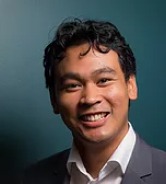The Solving the AI Race round of the Challenge ran from 18 January - 18 May 2018.
Background
The Solving the AI Race round of the Challenge asked participants to come up with solutions to the problems associated with the AI Race where:
- Key stakeholders, including the developers, may ignore or underestimate safety procedures, or agreements, in favor of faster utilization
- The fruits of the technology won’t be shared by the majority of people to benefit humanity, but only by a selected few
The primary objective was to find a solution or set of solutions for mitigating the risks associated with the AI race. The secondary objectives were to create discussion around the topic in order to gain a better understanding of the nature of the AI race, raise awareness of the race, and to get as diverse an idea pool as possible.
This round received 194 registrations from 41 different countries and a total of 59 submissions.
We had some great entries which were anonymized, shortlisted and passed to our judging panel made up of:
- Danit Gal, Project Assistant Professor, Cyber Civilizations Research Center, Keio University
- Roman V. Yampolskiy, Associate Professor at University of Louisville
- Virginia Dignum, Associate professor at TU Delft
- Marek Rosa, CEO at GoodAI
- Rodolfo Rosini</sp, Partner at Zeroth.ai
Judging criteria
The panel judged the entries on five criteria, giving them a score from 0-3. The criteria were:
- Impact: The potential the solution shows to maximize the chances of a positive future for humanity
- Feasibility: How practical it will be to implement / apply
- Acceptance: how likely it is that actors involved will accept the idea E.g. in case of an actionable strategy, what is the chance actors would publicly pledge to it? In case of a framework, how easily could it be adopted?
- Integrity: How ethical the solution is (ideally solutions should not disadvantage any actors and take into account diversity of values)
- Novelty: has it been suggested before of ideas
Results
The judges then discussed their scores together and determined six prize winners who received the highest score:
Top solutions ($3,000 each)
 Kesavan Athimoolam, Solving the Artificial Intelligence Race: Mitigating the problems associated with the AI Race
Kesavan Athimoolam, Solving the Artificial Intelligence Race: Mitigating the problems associated with the AI Race
Kesavan is a freelancer working on the creation of biologically inspired, safe and inspectable AGI that has provisions for emotions, motor-actions , behaviour-shaping & creative thought.
He believes that anyone attempting AGI creation should start with learning neuroscience, human brain and behaviour, and that contemporary deep-learning techniques will not lead to AGI.
 Alexey Turchin and & David Denkenberger, Classification of Global Solutions for the AI Safety Problem
Alexey Turchin and & David Denkenberger, Classification of Global Solutions for the AI Safety Problem
Alexey (1973) is author of several books and articles on the topics of existential risks and life extension, and was published in “Futures”, “Acta Astronatutica”, “Informatica”, “AI & Society”journals. He graduated in Moscow State University where he studied Physics and Art History (1997). He is an expert on global risks of Russian Transhumanists Movement from 2007. He translated into Russian around 20 main articles about existential risks by Bostrom, Yudkowsky, Circovich, Kent, Hanson.
 David Klimek, Framework for managing risks related to emergence of AI/AGI
David Klimek, Framework for managing risks related to emergence of AI/AGI
David received his B.S. from Penn State in Engineering Science, his M.S.E. from Princeton in Mechanical and Aerospace Engineering, and his Ph.D. from the University of Colorado at Boulder in the Building Systems Program. He is an assistant professor at University of Alaska Fairbanks in mechanical engineering. He is also an associate at the Global Catastrophic Risk Institute. He co-founded and directs the ALLiance to Feed the Earth in Disasters (ALLFED).
 Ehrik L. Aldana, A Theory of International AI Coordination: Strategic implications of perceived benefits, harms,capacities, and distribution in AI development
Ehrik L. Aldana, A Theory of International AI Coordination: Strategic implications of perceived benefits, harms,capacities, and distribution in AI development
Ehrik Aldana is a Research Fellow at University of California Hastings College of the Law’s Institute for Innovation Law. His recent research focuses on the political implications of artificial intelligence, both domestically and internationally. Previously, he has worked as a remote intern for the University of Oxford’s Future of Humanity Institute, as well as various public interest organizations in the United States. He received his B.A. in Political Science from Yale University.
Runners-up ($2,000 each)
The judges then discussed their scores together and determined six prize winners who received the highest score:
 David Klimek, Framework for managing risks related to emergence of AI/AGI
David Klimek, Framework for managing risks related to emergence of AI/AGI
David is Business Consultant/AI Enthusiast. He Graduated in Computer Science at Charles University in Prague. Spend most of his professional career in various consulting or managerial roles helping clients by analyzing complex systems, discovering stakeholder needs and finding effective solutions to their problems. Through all of his life, David is trying to understand how a human brain is working and with the latest advances in Artificial Intelligence also how AI impacts business and society.
 Gordon Worley, Avoiding AGI Races Through Self-Regulation
Gordon Worley, Avoiding AGI Races Through Self-Regulation
Gordon is a researcher working to address the existential risks of AI. He was introduced to the issue in the early 2000s by Nick Bostrom and Eliezer Yudkowsky and has made it a priority ever since. His current work focuses on using phenomenological methods to perform philosophical investigations into fundamental issues relevant to AI alignment research.
 Morris Stuttard & Anastasia Slabukho, The AI Engineers’ Guild: proposal for an AI risk mitigation strategy
Morris Stuttard & Anastasia Slabukho, The AI Engineers’ Guild: proposal for an AI risk mitigation strategy
Morris is a Writers’ Guild of Great Britain writer from the UK. A graduate in Archaeology and Prehistory and former Head of English, Morris is currently based in Prague, where he writes screenplays, novels and video games internationally. One of his primary genres is science fiction and his work in this field inspired both he and a sci-fi writing student to contribute what they could to the AI race problem.
Five of the prize winners managed to attend the Human-Level AI Conference in Prague this August, which is was co-organized by GoodAI, where they discussed their ideas further in an AI Race and Societal Impacts panel discussion (photos below).
AI Race and Societal Impacts at HLAI
At the AI Race and Societal Impacts session at the Human-Level AI conference our finalists were joined by:
- Tak Lo, Partner, Zeroth.ai
- Alison Lowndes, NVIDIA
- Seán Ó hÉigeartaigh, Executive Director, Cambridge Centre for the Study of Existential Risk
- Irakli Beridze, Senior Strategy and Policy Advisor, UNICRI, United Nations
- Roman V. Yampolskiy, Associate Professor at University of Louisville
- Virginia Dignum, Associate professor at TU Delft
- Yolanda Lannquist, AI Policy Researcher, The AI-Initiative at The Future Society, Harvard Kennedy School
- Hava Siegelmann, Program Manager, DARPA
- Tyson Barker, Program Director and Fellow at the Aspen Institute Germany
For a panel session where they could discuss their ideas further. You can read more about the session here and videos will be made available shortly.








